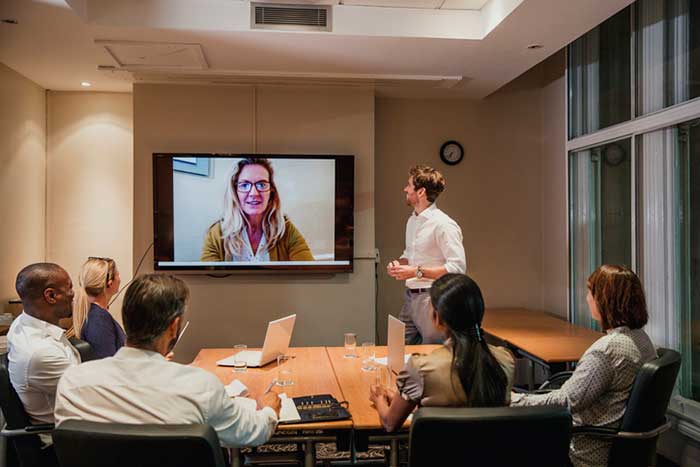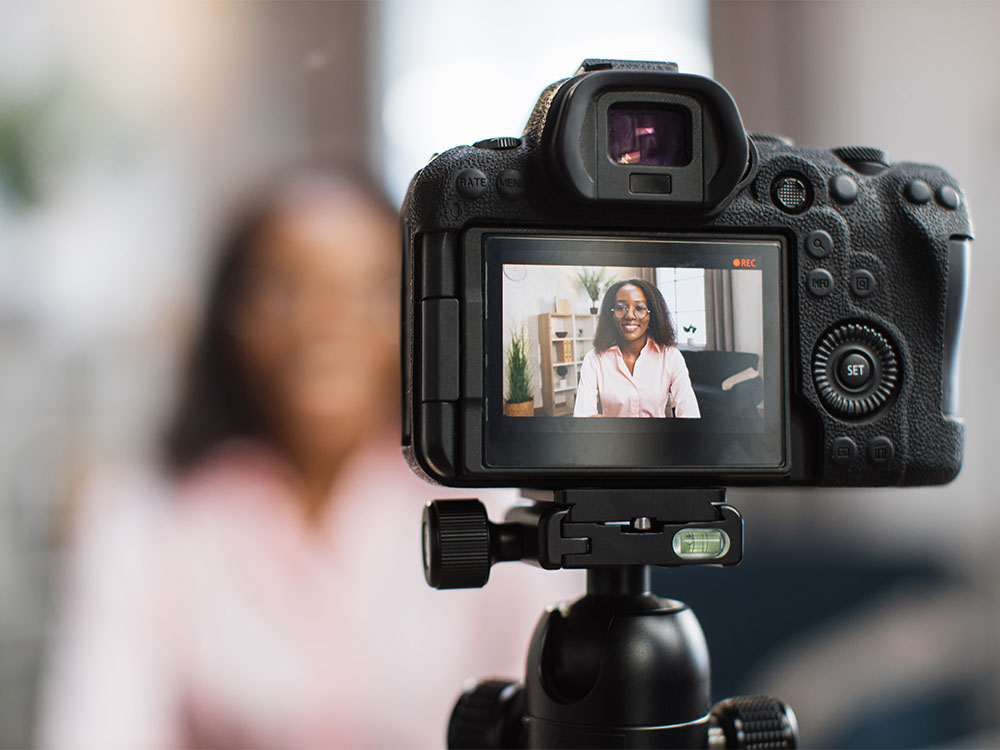Legal video depositions explained: From scheduling to secure storage
The Importance of Lawful Video Depositions in Modern Legal Services: What You Should Know
Lawful video depositions have ended up being important in today's legal landscape. They give a multidimensional view of witness testimonies that typical records simply can not match. By capturing both spoken and non-verbal communication, these depositions enhance the general understanding of a witness's reliability. The performance of video depositions pivots on different aspects, including conformity with lawful requirements and ideal techniques. Exploring these elements discloses their real significance in modern-day legal services
What Are Lawful Video Clip Depositions?
Lawful video depositions work as an important tool in the litigation procedure. They involve recording witness statements in a video style, recording both spoken and non-verbal interaction. This method allows attorneys to document the temperament, expressions, and reactions of witnesses, providing a richer context for the statement. Usually performed in a regulated setting, these depositions are led by lawyers that ask concerns while a stenotype reporter records the discussion. The resulting video clip can be crucial for test preparation, as it enables lawyers to examine the credibility of witnesses and fine-tune their strategies. Additionally, lawful video clip depositions can be used in different lawful contexts, varying from civil conflicts to criminal cases. The visual and acoustic elements of video depositions boost the discussion of evidence, making it a crucial part in the modern-day lawful landscape. Overall, they contribute considerably to the performance and performance of lawful procedures.

Advantages of Video Depositions Over Conventional Methods
Video depositions supply countless benefits contrasted to conventional approaches of taking witness testaments. One significant advantage is the capability to catch both audio and aesthetic components, providing an extra complete record of the witness's statements. This twin style improves clarity and allows lawful experts to reference particular nuances during test prep work. Furthermore, video depositions facilitate remote engagement, making it simpler for witnesses who might be not available for in-person appearances because of geographical constraints or wellness issues.Moreover, video clip depositions can accelerate the total deposition process, reducing the moment and expenses connected with travel and logistics. They additionally improve availability, as tape-recorded depositions can be easily shared amongst legal groups and referenced any time. This ease adds to better situation monitoring and preparation. On the whole, video depositions stand for a contemporary, effective approach to gathering witness testimonies, straightening with the developing needs of the legal occupation.
The Duty of Body Language and Tone in Testimonies

In lawful video clip depositions, body language and tone play important functions in sharing a witness's trustworthiness and reliability. Nonverbal signs can provide insights right into a witness's emotion, influencing how their statement is viewed. Recognizing the impact of these elements is necessary for attorneys and jurors alike when reviewing the reliability of a statement.
Nonverbal Interaction Insights
While spoken interaction is often emphasized in legal testimonies, nonverbal cues such as body language and tone play a vital function in communicating integrity and feeling. Onlookers of depositions may keep in mind that a witness's pose, motions, and face expressions can substantially affect perceptions of integrity. For example, consistent eye get in touch with may signal self-confidence, while staying clear of gaze can suggest dishonesty or pain. Similarly, the intonation-- its rate, pitch, and quantity-- can give sensations of sincerity or uncertainty. Lawyers must be in harmony with these nonverbal signals, as they often offer vital context that matches spoken words. Comprehending these subtleties can boost the performance of depositions and affect the result of legal process.
Psychological Tone Impact
The psychological tone shared during legal testaments significantly affects how a witness is perceived. Body language, singing inflections, and facial expressions play crucial roles in forming the story of a statement. A witness displaying confidence through consistent eye contact and a tranquil tone can infuse a sense of integrity and engagement. On the other hand, indicators of anxiety, such as fidgeting or an unstable voice, might result in apprehension regarding their account. The nuances of psychological expression can influence the analysis of facts, making it necessary for lawful experts to identify these signs. In video clip depositions, the acoustic and visual parts combine, stressing the importance of emotional tone in sharing sincerity and reliability within the lawful procedure.
Trustworthiness and Credibility
An important consider developing trustworthiness and dependability during testimonies depends on the witness's body language and intonation. Observers commonly rely upon non-verbal cues-- such as eye contact, pose, and motions-- to assess a witness's genuineness. As an example, a witness that keeps eye contact and displays open body language may be perceived as even more sincere and trustworthy than one who prevents eye call or shows up blocked. Furthermore, intonation plays a crucial duty; a stable, tranquil tone can reinforce the integrity of the testimony, while changes in pitch or quantity might elevate uncertainties. Ultimately, the mix of body movement and singing tone significantly influences exactly how a witness's statements are gotten and translated in a legal context.
Ideal Practices for Carrying Out Video Depositions
Conducting video clip depositions needs cautious planning and implementation to ensure a efficient and clear discussion of testament. First, it is essential to choose a quiet, well-lit location to minimize diversions and protected optimal video top quality. The devices should be checked beforehand, consisting of electronic cameras, microphones, and lights, to stay clear of technical issues throughout the deposition.Next, events involved must review click this link the layout and treatments ahead of time, seeing to it that everybody recognizes their functions. The deponent ought to be informed on the procedure, including just how to respond clearly and concisely.Additionally, keeping a specialist disposition throughout the session is important. This consists of avoiding from speaking over each other and validating that all questions are directed appropriately. Ultimately, it is essential to tape-record the deposition in a browse around here format that enables easy playback and testimonial, preserving the honesty of the testament for future usage.
Legal Considerations and Conformity Issues
How do legal considerations and conformity problems influence the effectiveness of video depositions? Lawyers must browse a complicated landscape of guidelines, making sure that video depositions stick to jurisdictional policies and requirements. Conformity with regulations worrying personal privacy, approval, and tape-recording approaches is crucial. Acquiring specific authorization from all celebrations entailed is required to stay clear of legal repercussions.Additionally, the admissibility of video clip proof in court can pivot on conformity with procedural demands. Ensuring that the devices utilized meets technological criteria is also essential, as low quality can weaken the deposition's reliability.Moreover, attorneys need to know any kind of certain state laws that govern video depositions, as these can vary considerably. Failure to attend to these considerations can not just threaten the integrity of the deposition but likewise impact the overall instance method, inevitably impacting the customer's legal results.
How Video Clip Depositions Impact Jury Understanding
While video depositions can work as effective tools in legal process, their influence on court understanding is substantial. The acoustic and visual aspects of video clip recordings supply jurors with a more comprehensive understanding of witness disposition, trustworthiness, and emotional responses. This multimedia approach can boost the jurors' capacity to evaluate the dependability of testimony compared to conventional text-based transcripts.Moreover, video clip depositions allow jurors to observe body language, intonation, and faces, every one of which can affect their analysis of the witness's statements. The existence of a witness on display can humanize them, fostering compassion and link, which might persuade jurors' point of views. Conversely, a witness that appears evasive or untrustworthy on video clip may bring about unfavorable perceptions that influence a jury's decision. Eventually, the vibrant nature of video clip depositions plays a vital role fit how jurors translate evidence and reach their judgments.
The Future of Video Clip Depositions in Legal Technique
As improvements in modern technology remain to improve the lawful landscape, the future of video depositions is positioned for considerable development. Advancements such as expert system, virtual truth, and boosted video clip conferencing devices are expected to simplify the deposition process and improve accessibility. Attorneys might utilize AI-driven analytics to evaluate witness reliability and situation stamina much more effectively.Moreover, the assimilation of digital truth can permit juries to experience immersive simulations of depositions, giving much deeper context and understanding. Additionally, the pattern towards check over here remote depositions is likely to continue, providing higher versatility for clients and attorneys alike.As remote job comes to be increasingly stabilized, video depositions will likely end up being common technique, minimizing prices and time constraints related to conventional techniques. In general, these technical advancements guarantee to enhance the efficiency, efficiency, and ease of access of video depositions in lawful practice, inevitably transforming exactly how legal experts get ready for trial.
Often Asked Inquiries
How Much Do Lawful Video Depositions Typically Price?

Can Video Depositions Be Made Use Of in Any Type Of Sort Of Case?
Video clip depositions can be made use of in various kinds of situations, consisting of civil, criminal, and family members law. Their versatility allows lawyers to present witness testimonies efficiently, adapting to the certain demands of various legal situations.
What Devices Is Required for a Video Clip Deposition?
To conduct a video clip deposition, vital equipment consists of a high-grade camera, microphone, illumination, and a trustworthy recording tool. Additionally, a computer with editing software application might be required for post-production and formatting the last video clip.
How much time Does a Normal Video Deposition Last?
A regular video clip deposition lasts in between 2 to 4 hours, relying on the intricacy of the case and the variety of concerns postured. Extensive sessions might take place, but breaks are generally included for participant comfort.

Are Video Clip Depositions Admissible in Court?
Video clip depositions are normally acceptable in court, provided they stick to lawful criteria and guidelines of proof. Their use enhances clarity and maintains witness testimony, helping in the judicial process throughout trials and hearings. Legal video depositions have actually ended up being vital in today's lawful landscape. Additionally, legal video clip depositions can be used in various lawful contexts, ranging from civil disputes to criminal situations. Additionally, video clip depositions facilitate remote participation, making it much easier for witnesses that might be inaccessible for in-person looks due to geographical restraints or health and wellness issues.Moreover, video depositions can quicken the total deposition process, decreasing the time and costs linked with travel and logistics. Making certain that the tools made use of satisfies technological standards is also vital, as inadequate high quality can threaten the deposition's reliability.Moreover, attorneys must be conscious of any type of certain state regulations that control video depositions, as these can differ significantly. Furthermore, the pattern towards remote depositions is likely to linger, supplying greater adaptability for clients and attorneys alike.As remote job becomes significantly stabilized, video clip depositions will likely become typical technique, decreasing costs and time constraints linked with conventional approaches.